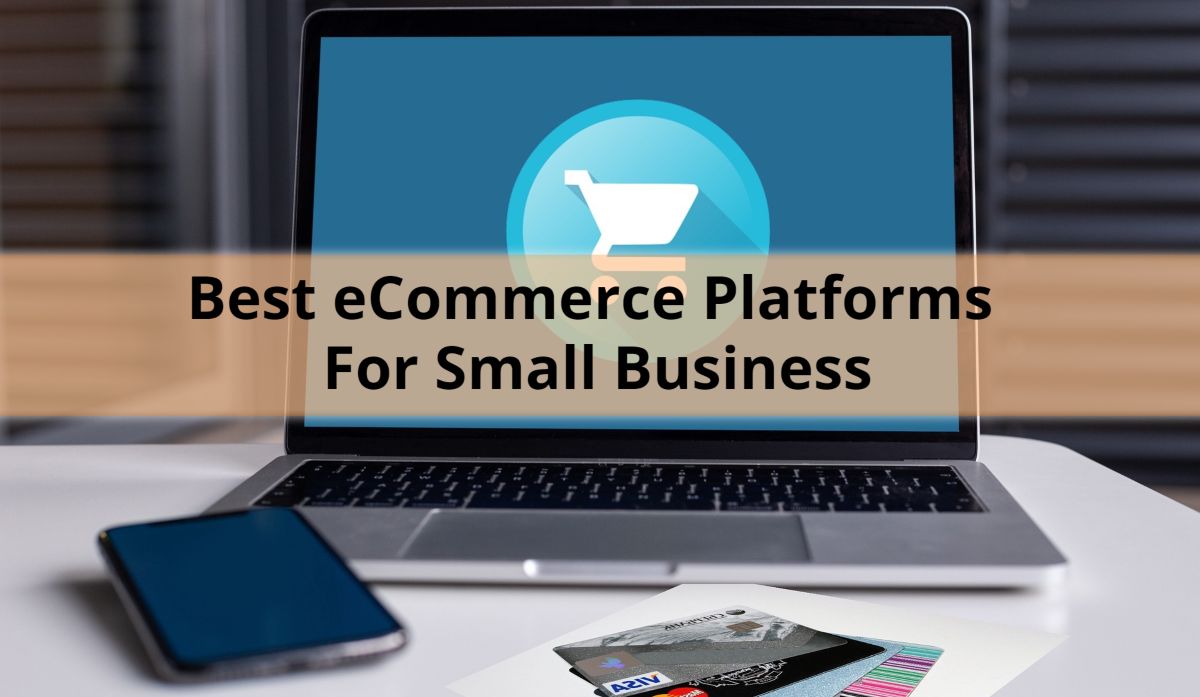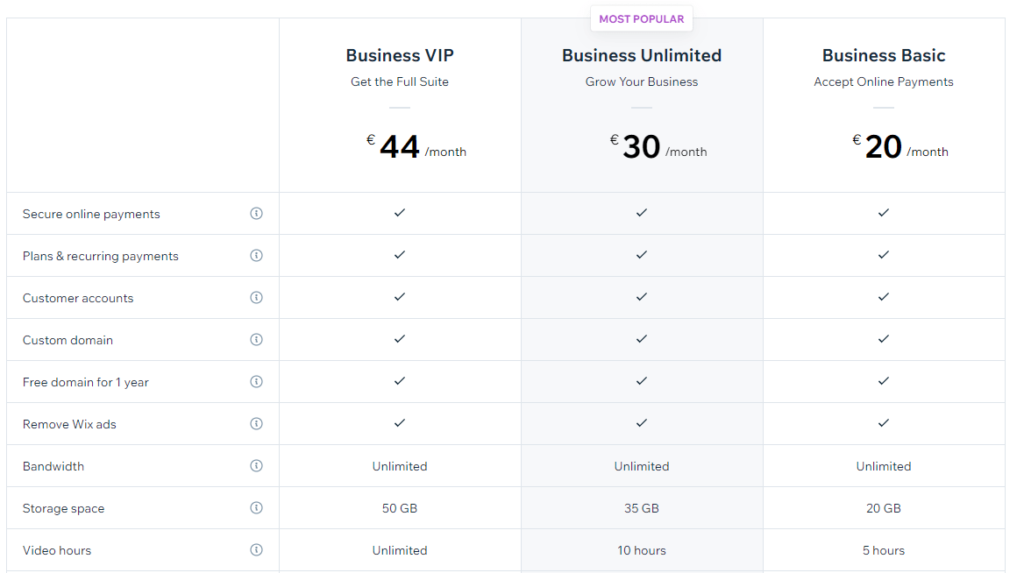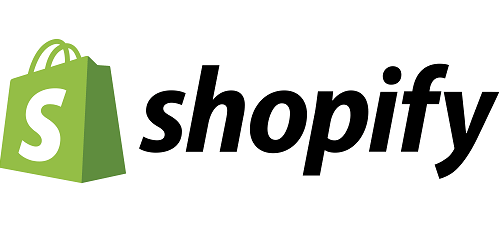The 5 Best eCommerce Platforms For Small Business

Are you ready to start selling online? Building an ecommerce website is one of the most efficient ways to reach potential customers, and luckily there are plenty of platforms to choose from.
With the right combination of features, tools, and customer service, you can create a professional, user-friendly website that will help you capture the attention of your target market.
I’ve rounded up the top 5 best platforms to build an ecommerce website. With these platforms, you can create a stunning website that will help you grow your business.
From user-friendly drag-and-drop editors to powerful analytics and marketing capabilities, each platform offers something unique to help you get your ecommerce website off the ground.
Read on to find out which platform is the best fit for you and your business.
Why You Should Trust Me?
The reason in simple. My last job, before going full online, was in a web-development agency. I was the sales guy essentially. I’ve had meetings with literally thousands of small businesses and eCommerce entrepreneurs and I’ve come to fully understand what these people needed.
Some of them where just OK with an all-in-one eCommerce solution while others needed custom made designs and self hosted eCommerce websites.
The following eCommerce platforms I’m recommending where many times recommended to our clients – based on each small business’ needs.
I didn’t wrote this article solely for ranking online like others do (e.g Google Best eCommerce Platforms For Small Business, find what eCommerce platforms the top ten results are recommending and write an even bigger list with 25 best ecommerce platforms), rather I recommend the top 5 based on my own experience and most importantly these eCommerce platforms are best suited for small businesses.
Large scale enterprises, most of the times order custom made designs and hire freelance developers or agencies for custom development.
Having said that, let’s move forward with the best ecommerce platforms for small businesses.
Best eCommerce Platforms For Small Business
Wix – Best Drag And Drop
Wix is an Israeli company that offers cloud based solutions for businesses to create their own websites. It is one of the most popular and user-friendly website builders on the market, making it perfect for beginners.
With Wix, you can easily create a professional looking ecommerce store with its drag and drop editor, hundreds of free templates, and powerful features.
Wix Pros & Cons
What I Like
What I Don’t Like
Wix Pricing
Wix has 3 pricing plans intended for eCommerce customers.

Bottom Line
Overall, Wix is a good choice for users who want an easy-to-use platform for building an online store, but it may not be suitable for users who need a more advanced or customizable ecommerce platform.
Shopify – Best for Ease of Use
Shopify is an all-in-one ecommerce solution that provides everything you need to build an online store.
It offers a wide range of features including payment processing, inventory management, analytics tools, and marketing capabilities.
With Shopify’s easy to use interface, you can quickly customize your store’s look and fee and enter the eCommerce world with ease.
Shopify Pros & Cons
What I Like
What I don’t like
Shopify Pricing
Shopify has five different plans. These are:
All plans except Shopify Lite include a transaction fee of 2.9% + 30¢ for online credit card payments and a 2.0% + 30¢ for in-person and manual payments made through Shopify’s POS.
However, Shopify also offers the ability to use third-party payment gateways, which may offer different rates and fees.
Bottom Line
Shopify offers a cheap, easy and fast way to start your eshop. Keep in mind though the extra charges from each sale as well as the pricing of essential plugins/apps needed for your store.
BigCommerce – Best For Large Scale Enterprises
BigCommerce is another all-in-one ecommerce platform that helps businesses create stunning online stores with ease.
It offers a range of features including SEO tools, analytics, integrated payment processing solutions, and more.
BigCommerce also offers helpful customer support to help you get started quickly and easily.
BigCommerce Pros & Cons
What I Like:
What I Don’t Like:
BigCommerce Pricing
BigCommerce pricing plans are as follows:
All plans include no transaction fee for online credit card payments and has the ability to use third-party payment gateways, which may offer different rates and fees. The pricing of the plans may vary depending on the package and the country where the store is based.
Bottom Line
Great and trusted platform to start your online shop. Has everything you need to build a successful eshop. Best feature is the ability for headless development.
WooCommerce – Best For Customizability
WooCommerce is an open-source ecommerce platform that is designed for WordPress.
It offers a range of features including product management, payment processing, analytics, and more.
Woocommerce also offers a wide selection of themes and plugins to help you customize the look and feel of your online store.
WooCommerce Pros & Cons
What I Like:
What I Don’t Like:
WooCommerce Pricing
WooCommerce is a free open-source e-commerce plugin for WordPress that allows businesses to create an online store on their website. The plugin itself is free to use and download, but businesses will need to pay for web hosting and a domain name to set up their website. In addition to that, there are few additional costs businesses might face while using WooCommerce:
However, There are also a number of companies and providers that offer pricing plans for WooCommerce hosting and other services. These plans can include web hosting, security, backups, and other features, and the costs will vary depending on the provider.
Bottom Line
WooCommerce is not a one stop solution that included it’s hosting, but it comes for free and you can hire a freelancer to set up everything for you for less than $100 on Fiverr. Other than that, WooCommerce has the biggest and most active community and you can easily find support for it from literally everewhere you look.
Ecwid – Best For Multichannel Selling
Ecwid is an ecommerce solution that is designed to help businesses create beautiful online stores with ease.
It offers a range of features including product management, payment processing, analytics, and more. Ecwid also offers helpful customer support to help you get started quickly and easily.
With Ecwid you can also sell across multiple channels, including Amazon, eBay, Facebook, and more all withing a centralized management interface.
Ecwid Pros & Cons
What I Like
What I Don’t Like
Ecwid Pricing Plans
Ecwid comes with 4 pricing plans which are:
Bottom Line
Ecwid offers the most comprehensive and user-friendly tools for selling on multiple channels, making it the top choice for merchants looking to expand their reach and increase sales.
So, which one should you choose?
When it comes to choosing the best eCommerce platform for small businesses, it really depends on what you’re looking for. Each platform has its own set of pros and cons, and it’s important to figure out which one is the best fit for your particular business.
If you’re looking for something that’s real easy to use and has a ton of ready-made themes to choose from, Wix might be the way to go. They got a lot of different pricing plans to choose from, so you can find one that fits your budget.
Shopify is another popular eCommerce platform for small businesses. It’s real easy to use, and it’s got a lot of different plugins and apps you can add to your eshop to give it extra functionalities. But keep in mind that as your business grows, the costs can start to add up and the more you sell the more cut Shopify will be taking from your sales.
BigCommerce is a solid choice for small businesses as well. They got a lot of different pricing plans to choose from, and they offer headless development, which means you can design your front-end however you want and use BigCommerce as your back-end. However, it might be harder to find freelancers to help you with development work.
WooCommerce is a great choice if you’re looking for something that’s free to use and built on top of WordPress. It’s real flexible, but it can also be a bit overwhelming if you ain’t tech-savvy. Of course you should consider that there is an abundance of developers and themes that have everything you might need.
Ecwid is a great choice if you’re looking for something budget-friendly. They got a free forever plan, and you can easily integrate it with a lot of different platforms, like Facebook, Instagram, Amazon, Etsy, eBay, TikTok and many more. But keep in mind that it ain’t a done-for-you solution, so it might not be as user-friendly as Shopify or Wix.
eCommerce Platforms List
To make this article more complete and if you are looking for more options, I’ve prepared this eCommerce platforms list (at least all I could find). I believe this list is more helpful even from Google’s results, since you don’t have to go through all that data and pages to find all the eCommerce platforms available.
| eCOMMERCE PLATFORM | BEST FOR | PRICE STARTS FROM |
| Ecwid | Multi-channel selling | Free plan available |
| Wix | Best drag and drop development platform. | $5.50 / month |
| BIG Commerce | Headless eCommerce | $29.95 / month |
| Shopify | Ease of use | €24.00 / month |
| WooCommerce | Having Popular and Vibrant Community | Free plan available |
| Weebly | Being a cheap Ecommerce solution | €10.00 / month |
| Shift4Shop | Being Simple Yet Powerful | Free plan available |
| ShopWired | Best rated ecommerce platform in the UK | £29.95 / month |
| Volusion | Simple to use and highly customizable | $35.00 / month |
| Sellfy | Fast deployment | $19.00 / month |
| Zyro | Ease of use | $3.59 /month |
| Nexcess | Best for Enterprise level companies | $19.00 / month |
| Squarespace | Best Design Templates | €28.00 /month |
| Adobe Commerce | Best for Enterprise level companies | Pricing not specified |
| PrestaShop | Free Solution | Completely Free |
| Big Cartel | Best For Artists | Free Plan available |
| Opencart | Best Open-source eCommerce platform | Completely Free |
| Square Online | Best for restaurants | Free plan available |
| Salesforce Commerce Cloud | Best for Enterprise level companies | Pricing not specified |
Bottom Line
When you’re building an ecommerce website, your goal is to help potential customers find and purchase your products online. Build a professional, engaging website that makes it easy for them to make purchases and learn more about your products.
With the right ecommerce platform you can build a store that showcases your products in a beautiful and engaging way, while also providing valuable information on related products and company details. There are a number of ecommerce platforms to choose from when building your business’ online storefront.
While some focus on speed, others offer features like drag-and-drop interfaces and automated marketing campaigns. When you’re building an ecommerce website, speed is key – it can make or break potential sales. That’s why it’s important to choose the right ecommerce platform for your business.





